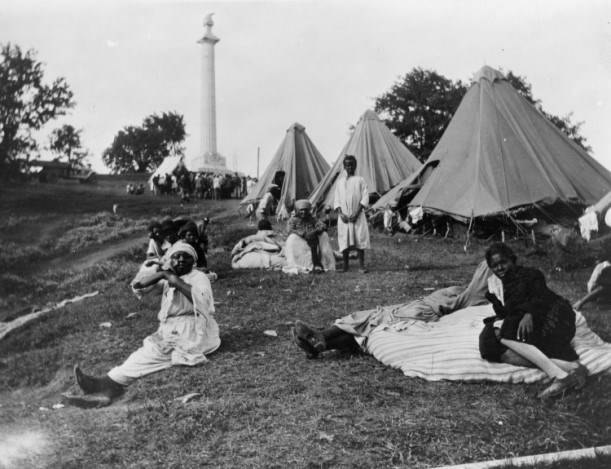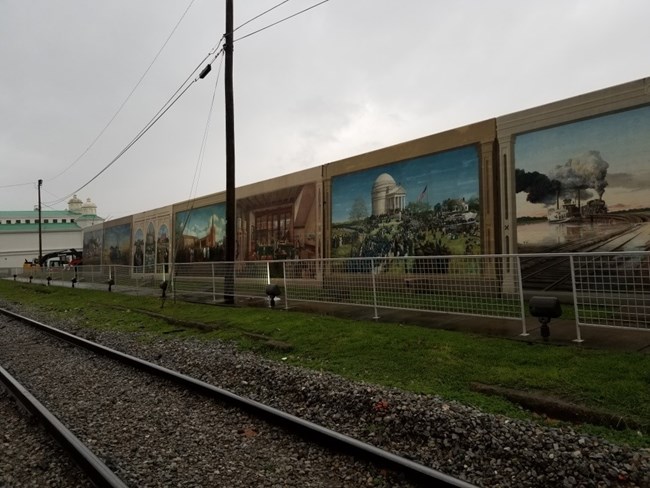
The intensity of flooding along the Mississippi River varies from year to year. Some years provide much needed water and nutrients to farmland in the flood plains. In other years, flooding proves to be devastating to communities along the river. There have been several historically significant floods over the last century. The Great Flood of 1927 was one of the biggest and most devastating floods along the river. In Vicksburg, the crest of the flood was 56.2 feet. After a levee failed in Mounds Landing, MS flood waters were able to reach towns nearly 60 miles away from the river. This flood affected nearly the entire Mississippi Delta region. Near Vicksburg, the river was nearly 80 miles wide, reaching the town of Monroe, LA. In addition to destroying thousands of homes and business, the flood also contributed to the already heavy tensions regarding race relations in the early 20th century. Segregated refugee camps were set up. These camps ranged in size and quality of living conditions. There were also issues of forced unpaid labor and unequal distribution of food in many of the refugee camps. After flood waters receded, thousands of African American families left the south forever to seek a better life in the north. This significantly accelerated the Great Migration. 
Modern Flood Control The Mississippi River floods most years, predominantly in late spring during peak runoff season. The flat land extending beyond the river channel is known as the flood plains. During a flood, the river will overflow its banks and spread across the flood plain. Because so much infrastructure has been built on these flood plains, major flooding can lead to damaged property and other dangers, which has led to the construction of levees along the river. The current channel of the Mississippi River is held in place by a series of artificial levees constructed by the U.S. Army Corp of Engineers. These levees protect towns along the river from a massive flood disaster. Some of these levee walls can be seen in downtown Vicksburg. These levees can be constructed by building up earth mounds to a height above the expected flood level. Man made levees can also be constructed as concrete walls, such as those in downtown Vicksburg. In addition to man-made levees, the Mississippi River also creates its own natural levees. When the river floods, it deposits silt, sand and gravel along the floodplain. The coarser materials tend to get dropped from the water along the edges of the channel. Over time these deposits build up creating natural levees. Breaches in levees, both natural and manmade, have occurred over time. The use of sandbags (typically mined from local sources) often helps reinforce these levees, preventing a possible disaster. |
Last updated: May 30, 2018
